Chicken eggs are one of the most heavily consumed foods around the world. Thus, it is crucial to know how long they are good for, which may vary depending on certain conditions.
How long are chicken eggs good for? They are good for three weeks at room temperature but can be kept at low temperatures for up to three months. A sniff/smell test may be conducted to check if an egg is still good.
This article will discuss the importance of knowing how long chicken eggs remain edible, the safety and edibility of certain egg types, and the harvest, collection, and storage of chicken eggs.
Why Do We Need to Know How Long Chicken Eggs Are Good For?
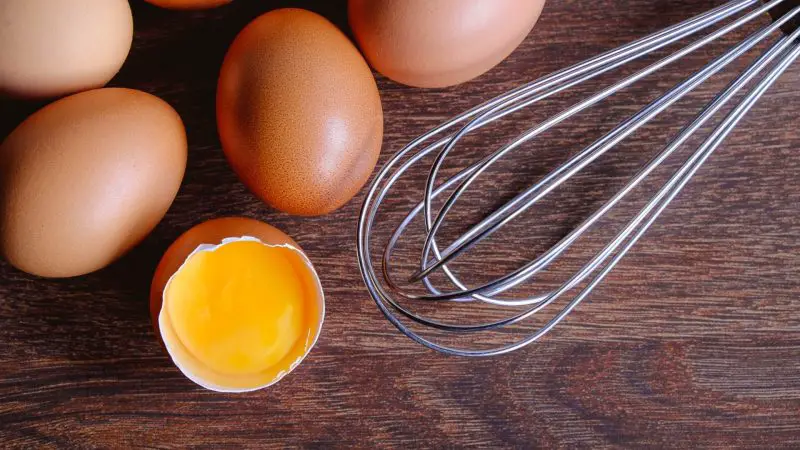
One of the main risks of consuming spoiled eggs is salmonellosis or food poisoning due to Salmonella. More than 70% of the salmonella outbreaks in the United States in the 1980s were attributed to chicken eggs, emphasizing their proper handling and storage.
It’s essential to know how long chicken eggs are good to avoid Salmonella poisoning. It was shown that storage length impacts their susceptibility to Salmonella. This is because the protective membrane decreases its strength over time and increases its temperature.
How to Avoid Salmonella Poisoning?
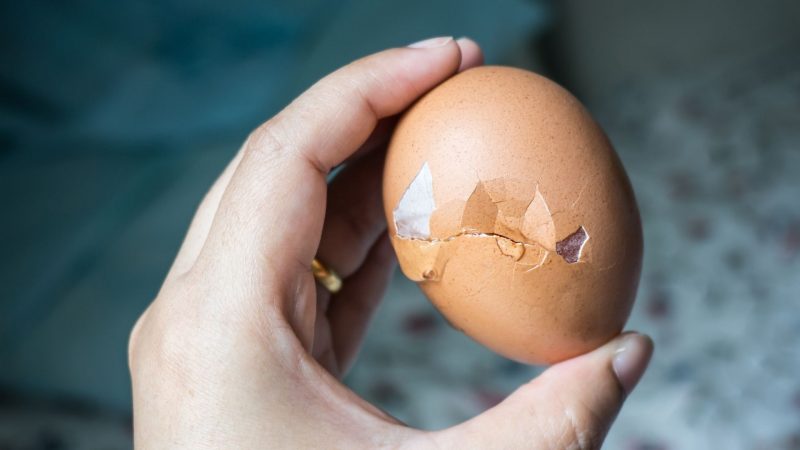
To avoid Salmonella poisoning, do not buy or consume dirty, cracked, or raw eggs. Indeed, food poisoning cases due to Salmonella have declined over the years; however, the threat is still imminent, and you can increase your chances of contracting it by buying eggs that look sub-par.
The bacteria can be killed at high temperatures. Thus, cooking egg dishes thoroughly is encouraged. If there’s a need to use raw eggs for salad dressing or other food products, use pasteurized eggs to ensure safety.
Salmonella Poisoning Symptoms
The most common symptoms of Salmonella poisoning are:
- Vomiting
- Diarrhea
- Stomach pain
- Flu-like fever
- Headache
- Body ache
To avoid aggravating conditions, seek medical help immediately.
Are Backyard Chicken Eggs Safe to Eat?
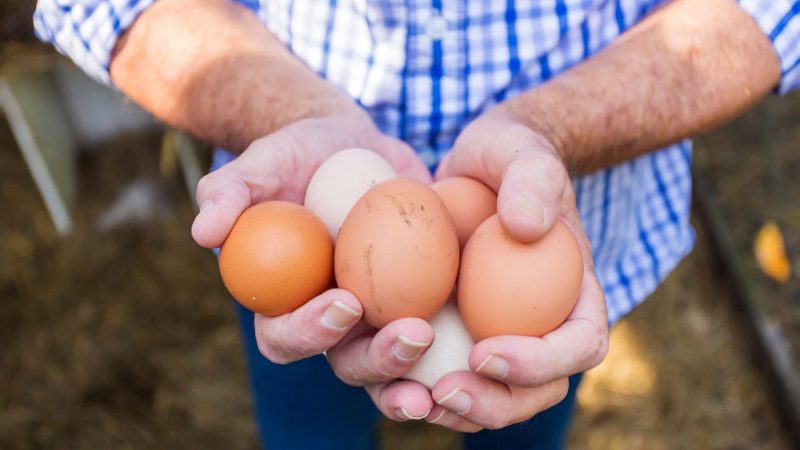
Backyard chicken eggs are generally safe to eat just like other eggs, provided that the chickens were cared for and kept clean. Personal flocks are still vulnerable to diseases and bacteria like Salmonella.
Tips To Keep Backyard Chickens Healthy and Safe
Hens must be well-taken care of to ensure safe and edible eggs:
- Providing proper and clean shelter. Chickens need a shelter to rest and lay eggs in private while being protected from the weather and predators. The size of the coop must be enough for the hens while having a place to roost.
- Cleaning their manure regularly. The coop must be cleaned regularly, at least once a week, to keep waste from piling, which often hosts many diseases. Composting manure may also help kill harmful bacteria.
- Keeping their nests clean. Materials like straw or wood shavings may be used to keep the nest clean for the hens. One nest is enough for four to five chickens.
- Giving them appropriate feed and enough water every day. Healthy hens lay great eggs with quality shells, which would help protect them from Salmonella and other pathogens. Adequate calcium is important for hens to lay eggs with strong and thick shells. Thus, it is crucial to ensure that this is present in their diet.
- Clean the feeders and waterers regularly. Just as you clean the coop and nests regularly, you should also clean these. These must also be filled every day. Feeds must also be stored properly to avoid contamination.
- Maintaining adequate temperature. Chickens do not eat as well as they should in hot environments, leading to poor-quality eggs.
- Washing your hands regularly. Washing hands is done to protect yourself and avoid cross-contamination. Poultry may carry diseases that harm people. As such, protection and hygiene are essential.
Are Fertilized Chicken Eggs Edible?
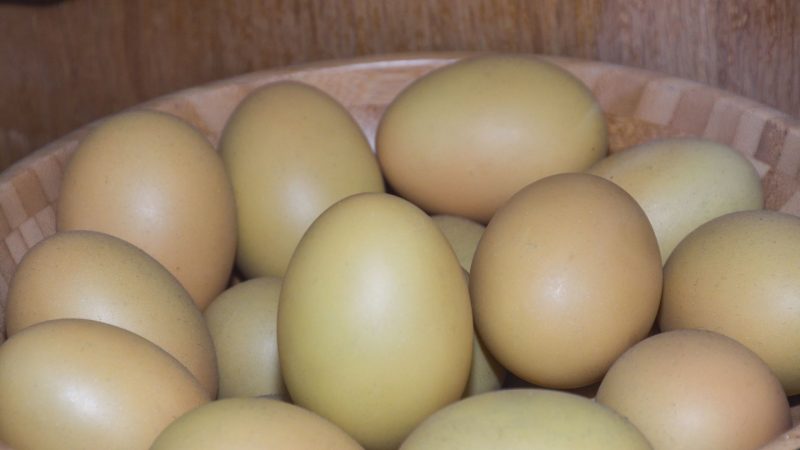
Fertilized chicken eggs are just as edible as unfertilized eggs. However, these eggs are not commonly consumed in the United States. There is also no nutritional difference between this egg and the typical, unfertilized egg.
How Long Are Chicken Eggs Good for in the Coop?
Ideally, chicken eggs from the coop should be collected twice every day to avoid exposure to pathogens and dirt. However, they can stay good in one for around four to five weeks.
Still, when collecting eggs from the coop, it is best to check the eggs first using a sniff/smell test, as rotten eggs will emanate a foul odor. Eggs with cracks should also be discarded.
How to Harvest Chicken Eggs?
To harvest chicken eggs, here are some important tips:
Separate Clean Eggs From Dirty Eggs and Discard Cracked or Broken Eggs
Dirty eggs don’t have to be discarded, but they shouldn’t be near clean eggs. Separating eggs keeps contamination as minimal as possible and is an essential part of any egg collection process.
Furthermore, you should immediately discard damaged eggs. They may have been infected already by bacteria or other similar ill-causing agents.
Clean Dirty Eggs
Dry cleaning is recommended as wet shells allow easy passage of bacteria. You can dry clean an egg using fine sandpaper, a brush, or emery cloth. Avoid using rags or sponges for dry cleaning, as they can hold bacteria.
Wet washing eggs may also be done if necessary. You should wear rubber gloves while wet washing, and be sure not to wash them too long. If you do, you could potentially cook them.
If you must wet wash your eggs, do so with hot water using unscented detergent. Be sure to wash eggs individually and change your detergent, and water every three or four eggs. Be sure to dry them before you store them.
Sanitize the Eggs
You can sanitize your backyard eggs using a solution of one tablespoon bleach in one gallon of water, rinsing after every dip. Don’t soak the eggs in the mixture; simply dip them quickly and remove them. Clean eggs may also be sanitized.
Store the Eggs
Store your eggs in the refrigerator for longevity and protection from pathogen exposure and contamination. Lower temperatures help keep Salmonella from penetrating the eggshell and yolk, thus reducing contamination. If bacteria have already penetrated, refrigeration keeps it from spreading further inside the egg.
Do Backyard Chicken Eggs Need to Be Refrigerated?
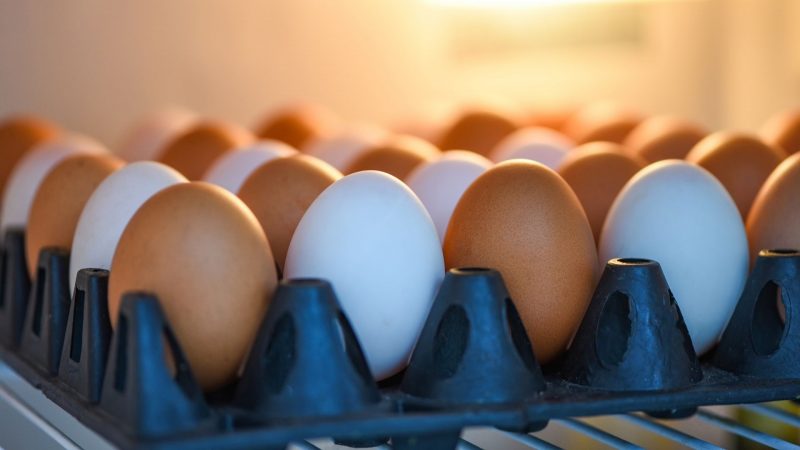
Backyard chicken eggs still need to be refrigerated, especially after being washed. Washed eggs have weaker cuticle coverings, making them more susceptible to Salmonella, thus storing them in lower temperatures may help prevent contamination or penetration.
Although dry and clean eggs may be stored at room temperature, they are only good for two to three weeks. But some country kept their eggs for up to three months in refrigerated storage. Thus, for minimal exposure and proper storage, eggs, especially those in shells, should be kept at low temperatures, preferably at 4°C (39°F).
How to Check Egg Quality?
A fast and easy way to check eggs and find defects is through the candling method. This method is quick and causes no damages; thus, it is favored by many producers. It is done best by passing light through an egg in a darkened room.
Candling can be used to differentiate a fresh egg from a stale one. Fresh eggs have thin and clear whites, while the stale ones only have thin whites.
Related: How to Start a Chicken Egg Farm? | Tips and Guide
List of Sources
An Educational Video and Research Experiment on the Longevity of Chicken Eggs
